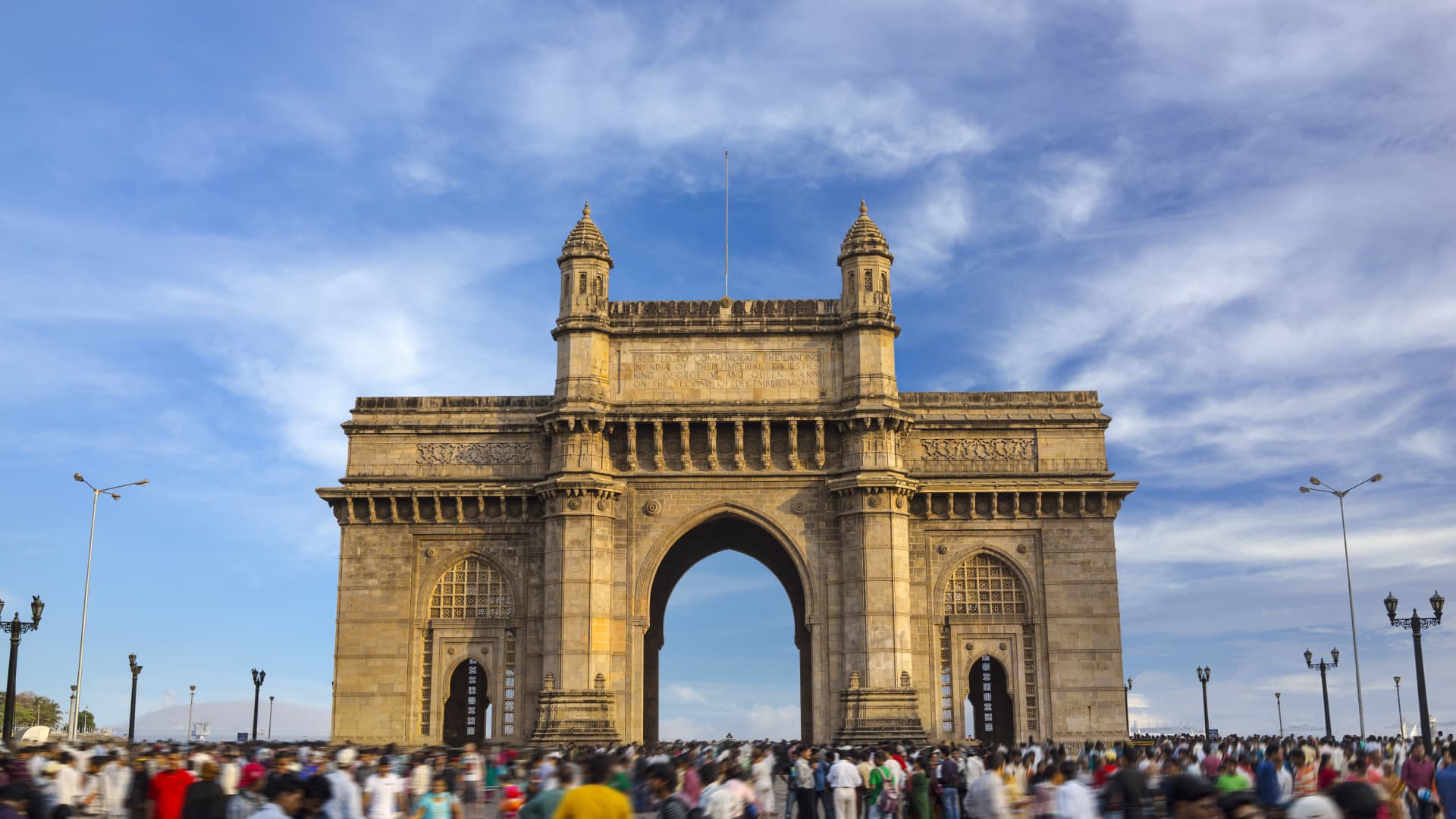India’s travel landscape is changing as the country emerges as a powerhouse in the tourism sector.
Their willingness to spend big while traveling is going, but research shows that most Indians are traveling domestically — not overseas.
Indian travelers took 1.7 billion leisure trips in 2022 but most never left the country, and only about 1% traveled abroad, according to Booking.com and McKinsey.
Indian travelers are projected to be taking 5 billion leisure trips by 2030, and 99% of those will be within the country as well, said the report published October.
The world’s most populous country is set to be the fourth-largest global travel spenders by 2030, largely due to a growing middle-income population that will see household earnings grow by $35,000 annually by that time.
In addition, the population is young, with the median age at 27.6, “more than ten years younger than that of most major economies,” McKinsey said on its website. “What’s more, consumption of goods and services, including leisure and recreation, is forecast to double by 2030.”
Spending on travel and tourism is predicted to hit $410 billion — a surge of more than 170% from $150 billion in 2019, the report showed.
Here are the top 10 spots for Indians traveling within their own country, according to Booking.com and McKinsey.
- New Delhi
- Bengaluru
- Mumbai
- Chennai
- Pune
- Hyderabad
- Gurugram
- Jaipur
- Kochi
- Kolkata
According to the “How India travels 2023” report, about 2,000 Indians and 42,000 global tourists between 18 and 54 years booked leisure travel trips in 2022 and plan to do the same this year.
New Delhi, Bengaluru, Mumbai and Chennai retained the top four spots since the previous study in 2015 — Kochi is the only new city on the list.
“India’s travel ecosystem is maturing and there are multiple government schemes that are making the country more connected and ensuring it develops into a tourist hub,” Kanika Kalra, managing partner at McKinsey Mumbai, told CNBC.
Smaller cities are gaining traction
The top 10 most visited cities are highly populated destinations, but that could soon change.
More and more Indians are now looking to discover smaller urban spots including those in Tier 2 or Tier 3 cities, Kalra said, adding that Kochi is a Tier 2 city.
Tier 2 cities in India are those with a population of between 50,000 to 100,000, while those from between 20,000 to 50,000 residents are classified as Tier 3 cities, according to India Briefing.
In addition to cosmopolitan cities like New Delhi and Mumbai, those like Jodhpur, Dharamshala, Bodhgaya, Bilaspur, Kodagu and Raipur are also catching the attention of international hotel chains keen to carve out market share in India’s booming travel industry.
“Branded hotels are currently focusing on Tier 2 cities for expansion owing to the increasing business opportunities and travelers’ increasing willingness to pay for standard services,” Deepak Rao, director of revenue management at Hyatt Hotels in India and Southwest Asia, said in the report.
French hotel chain Novotel opened its doors to travelers in Jodhpur in May, while Radisson Hotel Group announced in June it will start welcoming visitors to Raipur in 2025.
About half (52%) the hotels in Tier 2 and Tier 3 cities will be branded hotels by the end of 2023 — up from 27% in 2015, the report showed.
Growing interest in traveling to smaller Indian cities is largely attributed to the transportation infrastructure boost that is underway, said Mckinsey’s Kalra.
At its annual budget announcement in February, India’s finance ministry said it plans to pump up capital expenditures by 33% to 10 trillion rupees ($120.96 billion), as the country is poised to become the second largest economy by 2075.
Indian airlines have ordered over 1,000 new aircraft, which will bring the total number of planes to between 1,500 to 1,700 by 2030, the report showed.
“So we will see this landscape change quite dramatically and we will see a new wave of travelers to smaller towns,” Kalra said.
Top international destinations
Of the 1% of Indian travelers going overseas, here are the top 10 places they are visiting.
- Dubai
- Bangkok
- Singapore
- London
- Paris
- Ho Chi Minh City
- Ubud
- Hanoi
- Phuket
- Kathmandu
